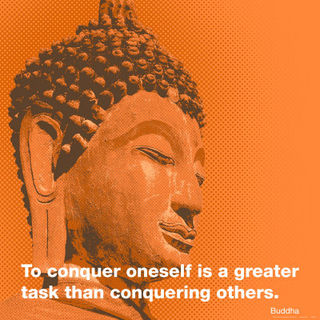Microaggression
Hard Truths and Half-Truths about Race on Campus, Part III
Race and Achievement, Microaggressions, Forgiveness, and a Correction
Posted June 13, 2016
This is the third and final entry in a three part series addressing the recent controversies on campus. It is a response to a critique of my Wall Street Journal article (with Jon Haidt) titled Hard Truths about Race on Campus, by Evelyn Carter (a postdoctoral psychologist at Purdue) and Lisel Murdock-Perriera, a graduate student in Stanford’s Psychology program (hence, C & M-P). Links to the first two entries can be found at the end of this post (the first also provides a synopsis of our essay and their critique).
Here I address their claims that race has nothing to do with academic achievement or qualifications, that microaggression training and reporting are beneficial, and that "forgiveness" can only come after a confession of sin. After debunking all this, I point out something we did get wrong in our WSJ essay (not addressed in their critique), and correct it here.
IS OUR ASSERTION THAT RACE CONVEYS USEFUL INFORMATION “WHOLLY UNTRUE”?
C&M-P wrote:
"Relatedly, the assertion that “race conveys useful information about the academic capacity” of students is wholly untrue. We routinely see that relying solely on stereotypes can lead to inaccurate, and biased, assessments of others."
They also (incorrectly, as shall be shown) characterized stereotypes as “misconceptions.”
C&M-P go on to describe a single study demonstrating racial bias in evaluations of writing samples at a law firm. Certainly, the biases found in this study are unjustified.
Nonetheless, their claims are almost completely out of touch with the scientific data. First, because racial differences in academic achievement are so large (see Part II in this series), race clearly does convey useful information. Second, and in contrast to C&M-P's characterization of stereotypes as "misconceptions," people are extraordinarily good at detecting such information. Stereotype accuracy – including racial stereotype accuracy – is one of the largest and most replicable effects in all of social psychology. A good introduction to these issues can be found in my prior blogs: Political Distortion of Science? Stereotype "Inaccuracy" and Stereotype Inaccuracy.
One of the most naive but common logical errors some social psychologists make is to assume evidence of bias "refutes" the existence of accuracy, or that evidence of accuracy "refutes" the existence of bias. Many researchers (e.g, Allport, Kenny, Judd, Dawes, West, and I have all published on this) have pointed out that bias and accuracy can and often do exist side by side. Studies that test for bias but not accuracy provide no information whatsoever about accuracy.
Furthermore, when one looks at the meta-analyses examining the role of stereotypes in biasing person perception (rather than cherrypicking a single study to make a point), one finds that, overall, the biasing effects of stereotypes are real, but are one of the smallest effects in social psychology. And even those effects weaken when people actually know something about the person they are judging besides their race. Regardless, a single study showing bias (or even a bushel full) does not refute the fact that race conveys useful information about academic qualifications on most campuses because of the relatively large racial differences in prior achievement (see our WSJ essay for links to references).
DID WE ARGUE STUDENTS SHOULD NOT BE TAUGHT ABOUT MICROAGGRESSIONS?
We did not. We did not even discuss what students should be taught, although we did argue against mandatory microaggression training. My own position is that there should be few limits on what professors can teach students. If students choose to take classes that teach about microaggressions, great. I would hope that such classes would provide some balance, teaching students to distinguish between, on one hand, bona fide insults, slurs, and hostility, and, on the other, mere disagreements or differences. But that is an issue of academic freedom – and if my colleagues wish to present a purely one-sided, imbalanced, ideologically skewed version, even they should be free to do so.
Regardless, that is not what we criticized. We criticized mandatory microaggression and diversity training – programs that are typically intrusive, expensive, ineffective, and sometimes counterproductive. Amazingly, even though the brilliant minds of thousands of academics committed to diversity have yet to produce a demonstrably generalizable and effective diversity training program, as we discussed in our original article, the military has done so, a finding perhaps shocking to radical leftist faculty who believe they have a monopoly on truth and wisdom. And it has done so by minimizing** not maximizing the importance of race.
** Just to be sure – although the military’s policies do minimize the importance of race, they are not colorblind – see our original WSJ article.
A NOTE ON FORGIVENESS
C&M-P wrote:
Yet their rush to skip to forgiveness without an understanding of what there is to forgive in the first place — the blunders (microaggressions), misconceptions (stereotypes), and self-righteousness (refusal to acknowledge and discuss race) — is shortsighted and absolves people of considering how their behavior affects others.

This reveals the type of weaponization of microaggression and diversity training that we consider so dysfunctional. We are calling for a great walking back of the shouting and self-righteousness – most of which is on the part of the protestors, and some of which is on the part of our illiberal colleagues. Despite the fact that protestors have made holding nonleftist views unsafe for expression through disinvitations, disruptions, and accusations of bigotry for imaginary transgressions, the College Republicans are not usually calling for "safe spaces" and anti-microaggression training. Given the blatant hostility to nonleftist views perspectives on many campuses -- nothing "micro" about it -- they would have more cause for doing so than do many of the protestors. The radical academic left’s coddling has also led to massive concept creep of notions such as microaggressions and cultural appropriation (i.e., ever-expanding beliefs about what constitutes harm). This has created the current environment of hypersensitivity to nonexistent and imagined slights that include such absurdities as protesting yoga classes and Halloween costumes, characterizing cafeteria food as racist if it has the wrong ingredients, and characterizing opposition to feminism and affirmative action and support for Donald Trump as micro- or even macroaggressions. Students now routinely complain of being "violated" when they hear views or observe practices that they simply do not like or disagree with. At Yale, some support repealing the First Amendment, because free speech is inconsistent with social justice.
This is disturbing stuff. One of the most vile features of the Stalinist Soviet Union was that one could never tell who would “inform” on you. Friends turned in friends; children and parents turned in one another. Combine some of the crazy things that students are claiming to be “victimized” by, with an anonymous “reporting” system (as advocated by C&M-P), and it is hard to not to see an erosion of support for fundamental democratic and academic principles and freedoms. Although the sanctions stop short of being sent to a gulag, they are serious enough that a prominent feminist has been subjected to what she has called “My Title IX Inquisition,” students have been suspended for controversial statements, and now tenure may not be awarded to faculty who are deemed insufficiently sensitive to diversity.
But back to forgiveness. How many 19 year old sophomores have engaged in behavior so racist it requires someone to actually forgive them? I suspect vanishingly few. When they have, they should acknowledge their transgressions before asking for forgiveness. But do we really want to presume that most students, simply because they are members in some so-called “privileged”** category, are guilty of racial transgressions that warrant forgiveness?
** There is hardly anyone left as unambiguously "privileged." The list of victimized groups is now so large – including but not restricted to women, blacks, Latinos, Asians, Muslims, Arabs, immigrants, gays, lesbians, transgendered people, people with disabilities, elderly people, single people, those from lower socioeconomic status backgrounds, and those who are overweight – that about 95% of Americans, by this standard, are now “victims.” Concept creep indeed...
Is there a value to sensitizing people to ways in which they might unintentionally say or do something offensive? Of course, this is part of being a civil person. Civility? Good. Understanding others? Also good. Self-righteous recriminations and microaggression reporting schemes? Not so much. Our call for an attitude of humility and forgiveness was not because, as C&M-P weaponized the term, people are routinely guilty of transgressions that require “acknowledgement” before they should be forgiven. No. Our call for an attitude of humility and forgiveness advocated dialing back the self-righteousness and hair-trigger readiness to take offense.
C&M-P call for more, rather than less, discussion of racial issues on campus. On this point, I strongly agree. We routinely have just such discussions in my classes and in my lab. We discuss the history of the pernicious exploitation of stereotypes, stereotype accuracy and biases, self-fulfilling prophecies, the overselling of stereotype threat, and critically evaluate the evidence regarding modern prejudices and various gaps. In my Spring, 2016 undergraduate seminar on scientific integrity, we discussed the fact that the gov’t may have dismissed and ignored the alarms raised about Flint Michigan’s tainted water, in part, because of prejudices against the main whistle-blower’s age (young), gender (female), and ethnicity (she is an Iraqi immigrant; we did not discuss her status as an immigrant only because I did not realize it at the time).
Discussing race is important. Self-righteousness, Soviet style punitive “informant” schemes, and mandatory diversity “training,” however, are more likely to stifle than promote such discussions. If one has any doubt, please view this debate held at Yale, where, despite entering with skepticism, about 2/3 of those attending ended up convinced the current campus protests constitute a serious threat to free speech. Discussing race requires toning down the heat, not ratcheting it up. It requires a campus environment in which all people, not just the protesters and their supporters, feel free to speak their minds. It requires civility, not informants and punishments.
An attitude of humility and forgiveness should be cultivated, not because, “there is something to acknowledge requiring forgiveness” but to encourage people to be less judgmental and ready to take offense in the first place. C&M-P say they want to encourage conversations about race. Great, let’s do it. “Microaggression reporting systems” make campus less safe for speech, not more safe. Less punitiveness, less self-righteousness, fewer recriminations, more openness, more humility, and more civility, offers hope of making campuses a “safe space” for everyone – including but not restricted to those who share C&M-P’s views.
THE NEED FOR RIGOROUS RESEARCH REDUX
They also ended their essay agreeing with our call for rigorous research, but they also:
- Advocated for diversity requirements (they wrote: “We suggest that universities incorporate a diversity requirement into their general education curricula”). These are exactly the type of intervention whose effectiveness is currently undemonstrated, with some evidence suggesting such interventions are more likely to backfire than improve anything.
- “… encourage universities to be proactive, not reactive, about addressing group differences in perspectives and experiences.” If this means anything other than “rigorous research into what works,” it is not articulated. Who can possibly be against being “proactive” about anything? I support being proactive not only about race issues on campus, but terrorism, the national debt, raising healthy children, improving my tennis game, and preventing viruses on my computer. But what are the specific proactive steps shown to be effective by rigorous research? The answers might ultimately be quite different than those of the protestors, or of Carter and Murdock-Perreira (or of mine, or Jon Haidt’s – which is why we should rely on the research, not our gut feelings or personal opinions, or on the need to signal whose “side” we are on, about these things). That’s one of the great thing about rigorous research – it is not on anyone’s "side," sometimes supporting leftwing worldviews (e.g., evidence of racial discrimination in real world settings) and sometimes conflicting with those views (e.g., evidence that diversity training is massively expensive and of little or unknown effectiveness).
WE DID GET ONE THING WRONG, BUT IT WAS NOT ANYTHING IN C&M-P'S CRITIQUE
In our WSJ article, we also wrote:
In a review of more than 500 studies, published in 2006 in the Journal of Personality and Social Psychology, Thomas Pettigrew and Linda Tropp concluded that when people of different races and ethnicities mix together and get to know each other, the effect is generally to reduce prejudice on all sides. This is a good justification for increasing diversity.
But the researchers also found that these benefits depend in large measure on certain conditions, like having common goals, a sense of cooperation and equal status. The benefits disappear when there is anxiety about cross-group interactions. On a campus, this means that increasing the number of black students and professors could, in theory, improve race relations, but such benefits are unlikely when accompanied by microaggression training and other measures that magnify racial consciousness and conflict.
Our second paragraph is incorrect. They did not find that the benefits depended on the conditions we listed. In their review, positive contact typically improved intergroup relations, regardless of whether those conditions were met.
There was, however, an important exception that was relegated to Tropp & Pettigrew's footnote 13, which reads:
Not all contact experiences are positive, of course. Although most of the contact studies in our analysis focused on positive contact outcomes, some recent work has shown that negative intergroup experiences can enhance feelings of anxiety and threat and hinder the development of positive orientations toward the outgroup.
Our view is that microaggression reporting, bias response teams, mandatory diversity training, and creating even larger race differences in qualifications on campus will make contact experiences less positive, not more positive. As Tropp herself put it in a 2014 interview:
"Reduced racial anxiety and prejudice occur most often when people of different races cooperate as equals and work toward common goals with institutional support that endorses this kind of equal status and cooperative contact. We can look to cooperative learning strategies and integrated sports teams as examples of how these conditions can facilitate familiarity, mutual respect, and positive changes in interracial attitudes."
Exactly.
-------------
The first entry in this series, which includes summaries of our WSJ editorial, and the C&M-P critique, and our response to their false claim that we adopted a colorblind ideology, can be found here.
The second entry, on the irrelevance and dubiousness of stereotype threat, and the validity of standardized tests can be found here.
P.S. Carter declined my invitation to post a guest blog here in reply to my deconstruction of her criticisms.




